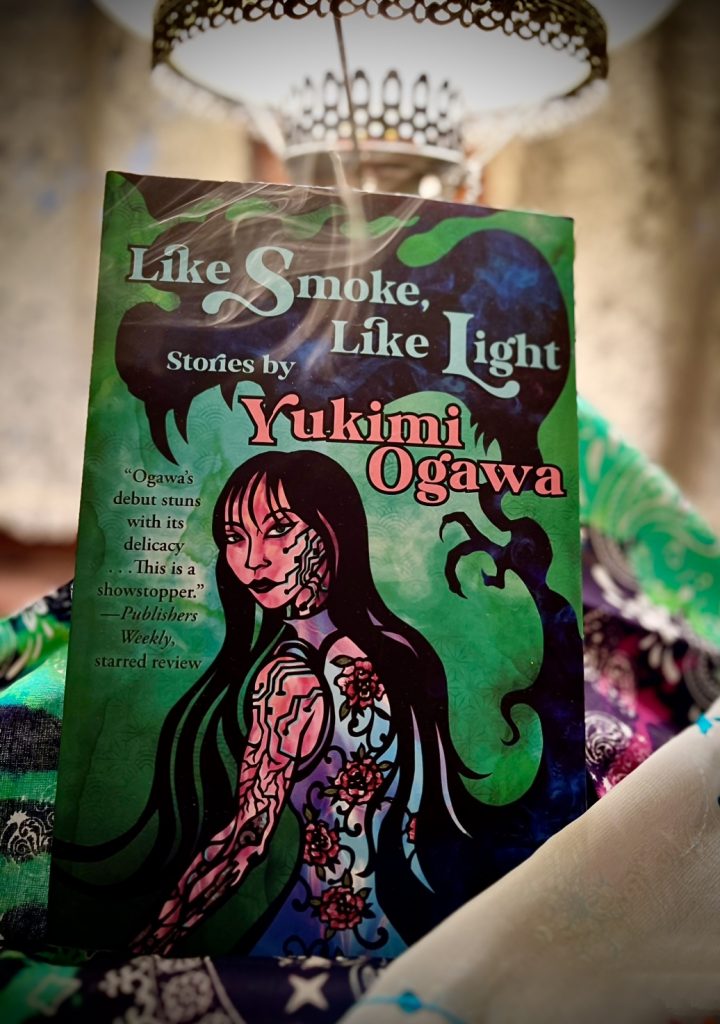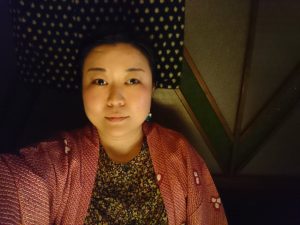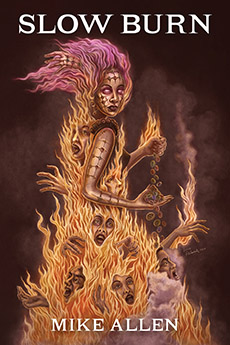LIKE SMOKE, LIKE LIGHT is here + four questions with Yukimi Ogawa
The third book release planned for Mythic Delirium’s 25th anniversary celebration has launched! You can now purchase Yukimi Ogawa’s debut Like Smoke, Like Light wherever books are sold online, and even in at least a few physical stores. (If your local store isn’t carrying it, by all means, request that they order it.)
As we did in February with our first two 2023 releases, we’re commemorating this event by sharing a quick interview with author Yukimi Ogawa about her inspirations and writing process.
(For our first release of the year, novel The Twice-Drowned Saint by C. S. E. Cooney, you can find our three questions with the author here, and for the second, The Collected Enchantments by Theodora Goss, you can find her answers to our three questions here.)
During the lead-up to publication, Yukimi’s debut earned stellar plaudits from Publishers Weekly:
“Ogawa’s debut collection of 17 speculative shorts stuns with its delicacy … There’s a gorgeous fluidity to these tales that makes them hard to pin down, as they often end somewhere very different from where they began. Harkening back to the oldest folk and fairy tales and raising pointed questions about how humans value and devalue each other, this is a showstopper.”
—Publishers Weekly, starred review
And check out this amazing picture by Anita Allen that contains both smoke and light:

In case you missed it: click here to read Yukimi Ogawa’s ‘Big Idea’ essay at John Scalzi’s blog
Four questions with Yukimi Ogawa

Yukimi Ogawa
Q: Your collection Like Smoke, Like Light blurs and breaks genre boundaries, but it does loosely hold two distinct groupings of stories, some of which are based on monsters from Japanese folklore, and some of which explore a society you created, known as the “colorful island.” Do you have distinct processes for creating these tales?
“The ideas come from different places of my brain, I think, because the colorful island was all made up by me, but I need to go look for ideas for yokai/folklore stories. But the processes of writing are more or less the same. All I want while I write a story is to get it written, and I don’t think I have much room left for worrying about genres. I just put in elements the story seems to need, and it ends up in that wee place in between genres …”
Q: What sort of research do you undertake for the yokai stories?
“I love flipping through Toriyama Sekien’s bestiaries, and enjoy going to yokai-themed exhibitions (and buy the catalogue sometimes.) I try to not be too inventive about yokai because they are traditional to our culture, but not be restricted by the folklore too much either. The balance is important, but difficult to keep!”
Q: What are you working on right now?
“Another yokai story—I really hope this turns out okay, because I like the protagonist.”
Q: What does it mean to you to have this debut collection of short stories out in the world?
“Other than hugging it and dancing, singing ‘I haaave a boooook!’? Well. I think I’m something of an outlier here … having a book out in my second language that I don’t really speak, consisting of stories published in magazines and books from foreign countries. I, with help from many others of course, achieved something that wouldn’t have been achievable, say, fifteen years ago. I’d be really delighted if this book gives someone a moment, in which they wonder, if the thing they think is impossible now may not be entirely, totally impossible.”
![]()















